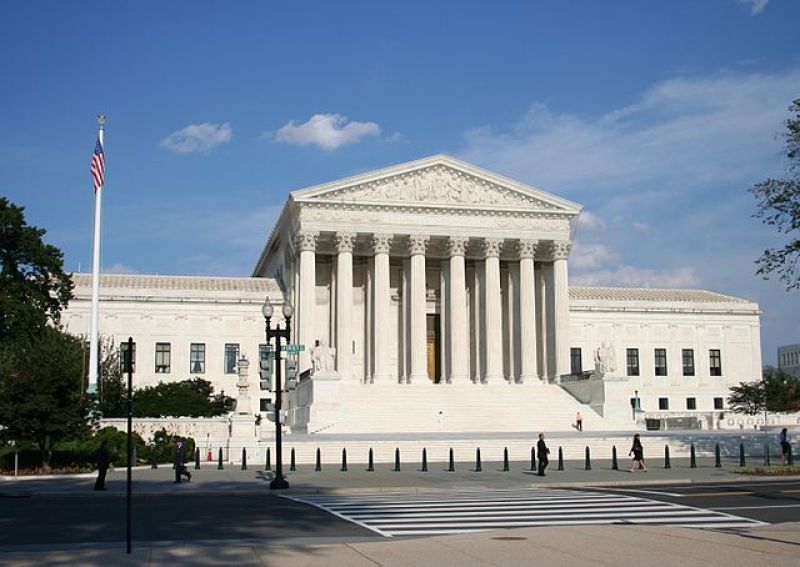
The U.S. Supreme Court is considering to finally give attention to the high-profile 2020 election lawsuits filed by various individuals including former President Donald Trump's legal team during its conference this month, a report said.
The Epoch Times reported that the U.S. Supreme Court announced last Friday that it has scheduled for consideration the election lawsuits filed by Trump for Pennsylvania and Wisconsin, by Mike Kelly, by Lin Wood, Jr. for Georgia, and by Sidney Powell for Michigan during its conference on Feb. 19.
As per Epoch Times, all the cases alleged "some form of unlawful election-related conduct affecting the results of the election." This included the "expansion of mail-in balloting by elections officials, changing rules in contravention of state election laws, lack of adequate security measures around mail ballots, issues with machine vote tabulation, and denial of meaningful access to poll watchers."
These cases were filed prior to the inauguration of Joe Biden in an effort to disqualify the electoral certification given by the respective states where the alleged fraud took place. However, The Epoch Times explained, the Supreme court did not grant the much requested relief nor did they fast-track the cases prior to the inauguration.
The Supreme Court even rejected one of the lawsuit filed by Republican Texas Attorney General Ken Paxton that was supported by Trump out of its distancing from the said allegations on election fraud, The Epoch Times said.
According to the American Bar Association, Powell's Michigan case, officially entitled King v. Whitmer or case No. 20-815, is about fraud and vote dilution. It is a case filed by a "group of Michigan voters and nominees of the Republican Party to be presidential electors in Michigan against Michigan Governor Whitmer and other state officials, alleging widespread voter fraud and various violations of Michigan voting law." It cited three "constitutional violations under 42 U.S.C. section 1983 of: (1) the Elections and Electors Clauses, (2) the Fourteenth Amendment Equal Protection Clause, and (3) the Fourteenth Amendment Due Process Clause."
The Wood v. Raffensperger or case number 20-14418, as per the American Bar Association, complained on the restrictions on voting by mail. Filed on Nov. 13 by individual Georgia voter Lin Wood, Jr. against various Georgian election officials led by Secretary of State Bradford Raffensperger "to enjoin certification of the November general election results, secure a recount, and establish new rules for the January senate run-off election" out of claims that "the absentee-ballot and recount procedures violated state law and his rights under the U.S. Constitution." The motion to expedite the case was denied on Jan. 11.
Also on fraud and vote dilution, Trump's Case, which is number 20-845 entitled "In re: Canvassing Observation", was filed on election day itself in Pennsylvania. The American Bar Association summarized that "President Trump's campaign committee petitioned to allow campaign representatives to more closely observe the canvassing of ballots in Philadelphia County" but the "Court of Common Pleas of Philadelphia County Election Court denied the motion."
"The committee claimed that the Philadelphia County Board of Elections had configured their ballot-canvassing tables in a manner that made it difficult to observe the process by candidates, candidates' representatives, and watchers. The Board countered that so long as observers were permitted to be present in the canvassing room, they had an opportunity to observe the canvassing process as required by the state's Election Code," the American Bar Association narrated.
They added that the Commonwealth Court of Pennsylvania then reversed its decision after "finding that the intent of the relevant portion of the Election Code was to provide an opportunity for 'meaningful observation' and that this opportunity had been denied to observers in Philadelphia County."
Trump v. Biden or case number 20-882, on the other hand, was filed on Dec. 3 at Wisconsin by Trump, former Vice President Mike Pence, and the organization Donald J. Trump For President, Inc. in appeal "from the recounts in Dane and Milwaukee Counties" against Biden who was already declared President-elect at that time.
"The plaintiffs claimed that absentee ballots had been submitted without the requisite written applications; certification envelopes for the ballots were incomplete or had been altered; voters who did not qualify to vote by absentee ballot as being 'indefinitely confined' due to disability or illness had done so; and ballots cast during 'Democracy in the Park' events were not properly mailed or delivered to the municipal clerk issuing the ballots," the American Bar Association said in summaring the case's content.
As for Kelly's case with number 20-810, The Epoch Times said it was a request for an injunction to prohibit the Executive-Respondents from taking official action to tabulate, compute, canvass, certify, or otherwise finalize the results of the Election."
Powell's case, number 20-815, requested for "emergency declaratory relief avowing that the presidential election results certified by Michigan officials were unconstitutional and otherwise contrary to law, together with injunctive relief de-certifying those results."









































